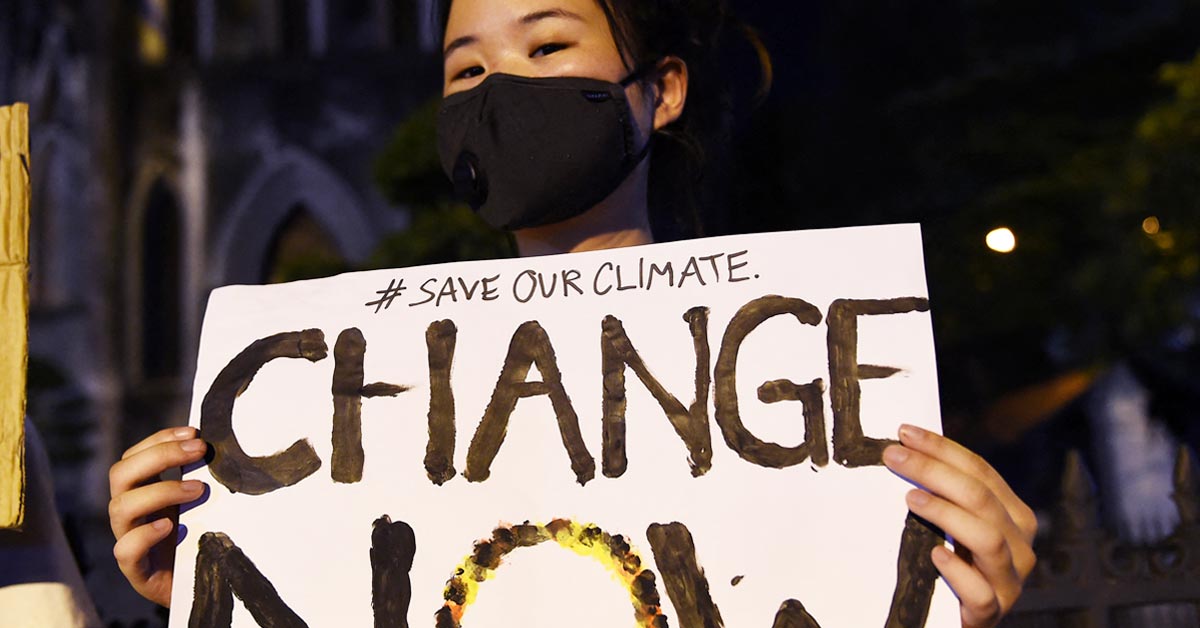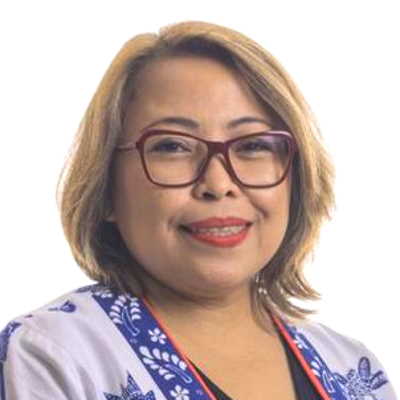As the world witnessed 200 leaders gathered in Glasgow, United Kingdom for COP26, there is a cautious hope that the world leaders will develop a path towards implementing the 2015 Paris Agreement, towards reduced emissions and the decarbonised planet, and among others; Green Economy.
A green economy, by definition, is a low carbon, resource-efficient and socially inclusive economy. An inclusive green economy improves human well-being and builds social equity while reducing environmental risks and scarcities.
The 2011 United Nations Environment Programme (UNEP) Green Economic Report argues "that an economy must be efficient and fair" to be green. Fairness implies recognising global and country-level equity dimensions, particularly in assuring a just transition to a low-carbon, resource-efficient, and socially inclusive economy. So by definition, the green economy should be inclusive, including young people.
That youth is a force to reckon with regards to combatting climate change is undebatable. Young people are valuable contributors to climate action as campaigners, eco-preneurs, and innovators. They are also valuable consumers for eco and ethical products and services. In terms of numbers and their potential buying power, young people are not to be dismissed.
According to McKinsey, by 2025, young people aged 16-30 years old, grouped as the Millennials (25-40 years old) and Gen Z (16-24 years old). In Indonesia, for example, 1 in 4 people, or 64.5 million people, are within this category.
The Asia Pacific region is at the junction, leading to a situation where countries would enjoy the demographic bonus. The number of productive populations exceeds the number of non-productive ones, and another to a case of democratic burden.
In 2020, a report by the Asian Development Bank (ADB) and International Labour Organization (ILO) suggested that youth unemployment rates in the region were rising quickly. The report projected that by the end of 2020, 13 countries would show sizable jumps, with youth unemployment rates doubling the 2019 rate in some cases.
Is the green economy the answer to youth unemployment as well as climate crisis? It is probably too early to conclude. The ILO stated in its report, the World Employment and Social Outlook, that a greener economy could create 24 million new jobs globally by 2030. A survey of 1000 youth in the United Kingdom in 2020 found that 50 percent wanted a job in an environmentally sustainable business.
Many young people have an early interest in protecting the environment in a system that doesn't exacerbate environmental degradation. A study by McCann WorldGroup Asia Pacific released earlier this year (July 2021) finds that 89 percent of Gen Zs in Asia-Pacific believe their generation has the power to influence a brands' actions for the better. 77 percent of APAC's Gen Z agree that they have a responsibility to make a positive contribution to the community where they live.
In Indonesia, a recent survey by UNDP finds that 95 percent of Micro, Small and Medium Enterprise (MSMEs) are interested in applying environmentally practices.
Through several programs involving young people, Plan International Indonesia found that youth, given the chance and access to information and training, have a great interest in learning about sustainable consumption and production practices. The Mata Kail project provided business and fish handling and processing training using simple energy-efficient technology (solar power) to almost 2,000 young people and 183 SMEs in three districts in the East Nusa Tenggara Province. As a result, young MSEs business persons who implemented the sustainable technologies experienced nearly double income, compared to those who only adopted improvement in business management (34 percent compared to 19 percent).
Another example is the Green Skill programme implemented in two districts in the East Nusa Tenggara Province since 2015. The programme has trained 2,000 young persons, with many women, to adopt green practices in vegetable farming. Green Skill participants learned to conduct horticultural practices in dryland by applying drip irrigation techniques, organic pesticides, natural fertiliser, and safe water disposal. So far, 35 out of 41 groups have implemented green horticultural practices; 39 groups have increased income. One of the youth green-agricultural entrepreneurs (agripreneurs) has been acknowledged nationally as a Millennial Farmer Ambassador by Indonesian President Joko Widodo.
Apart from that, Plan International, a development and humanitarian organisation has also been implementing outstanding efforts in the ASEAN region. For example, it has implemented the Sustainable Tourism in Lao PDR (SUSTOUR) programme to enable Lao tourism SMEs to adopt a greener supply chain and create greener products and services.
A green economy and green growth are the antitheses of a conservative or brown economy that depletes the environment. We heard from young climate activists and non-activists that it is not the future they want. They want businesses and development that sustain the earth, not ones that destroy it. They see opportunities in renewable energy, waste management, clean water management, ethical products and services, transportation, and green agro-maritime.
However, this shift requires public investment. The hope is that COP26 will create momentum for governments and companies to invest in promoting practices for a greener economy, including ones involving young people.
We need to empower and support young people - the key player of the greener economy.
It is crucial to build awareness from a very young age, invest in skills development and education, especially in science, technology, engineering and mathematics (STEM), and build a supporting ecosystem to systematically promote local champions and sustainable consumption and production practices.
The views expressed in this article are the author’s own and do not necessarily reflect those of The ASEAN Post.

